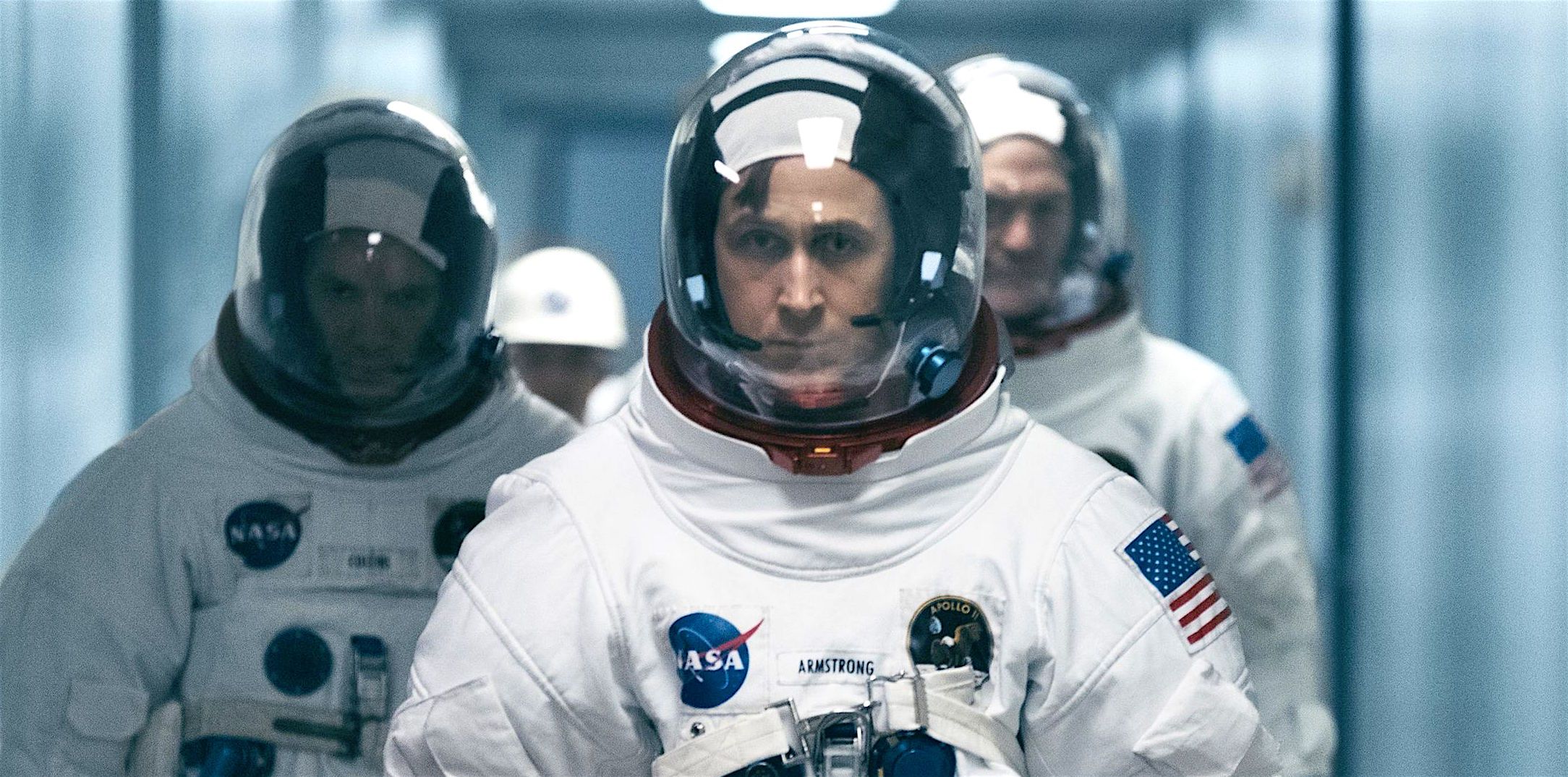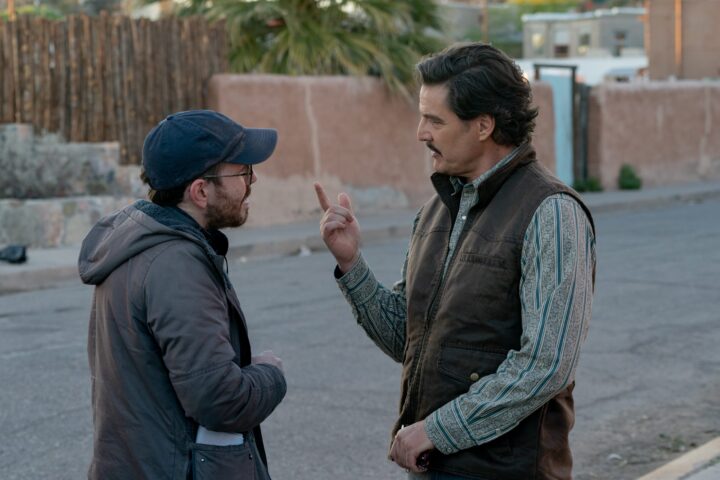Damien Chazelle’s First Man presents a vision of the space race, and the men and women swept up in it, as an intensely personal yet, at times, magisterial in scope and ambition. An epic of sorts, it’s a film of both intimate and large canvas pleasures, featuring a stoic Ryan Gosling as titular Neil Armstrong, presented here as an emotionally introverted husband and father who finds greater claustrophobia in his own feelings than inside the disarmingly low-tech, fraught-with-peril NASA rockets he pilots.
Gosling’s terrifically low-key performance as an American frontiersman anchors this involving, intense biopic, which is less about American exceptionalism as about the exceptional qualities of a few Americans.
The movie begins with a harrowing 1962 test flight of the X-15 rocket, and once the rocket begins plummeting to Earth and its controls go haywire, it has us hooked. This is real-life stuff and, according to the movie’s materials, taken directly from NASA launch logs. Armstrong’s calm intellect and flight expertise allow him to cheat death into a safe landing, but he can’t prevent his two-year-old daughter’s death from an inoperable brain tumor.
This event, depicted as formative and devastating, leaves Armstrong and wife Janet (a blistering Claire Foy) in deep grief. Armstrong, unable to express emotions even when offered condolences by colleagues, goes inward, forging ahead with NASA. But Janet senses an increasing drift between them, worrying that the missions—the details of which her husband keeps private—are becoming too dangerous.
Burrowing deep also prepares Armstrong to handle coming tragedies. There will be many more deaths of friends in space-related accidents, including the notorious launching paid electrical fire that killed Gus Grissom (Shea Whigham), Roger Chaffee (Cory Michael Smith) and Edward Higgins White (Jason Clarke), staged by Chazelle as a chain of events fluke so frightening it makes you wonder how it didn’t topple the entire program. Gosling has a marvelous moment where he receives this very bad news, and the subtle shifts in his eyes, facial muscles and posture are hallmarks of great, minimalist acting.
This absence of showiness works for the character, who isn’t a hotshot flyboy but rather a simple family man with a very dangerous job, one that is never depicted as a driving passion for Armstrong but more of an extreme vocation, and one that will change the course of history.
And when it finally comes, that gloriously immersive sequence, which Chazelle shoots without establishing shots and from the cockpit where we see firsthand what Armstrong and Buzz Aldrin (Corey Stoll) experience as the Apollo 11 lands, is amongst the best of any movie this year. Armstrong’s tentative first walk culminates in Gosling’s extraordinary reaction shot after he clears the moisture from his helmet and what he finally expresses, in a place where on one else can see, is quietly powerful.
Yet there is something remote about Chazelle’s approach in both his sometimes impenetrable protagonist and grainy, often dark handheld cinematography that can keep us at a distance. Tonally the movie is free of any true sweep or gleam; it’s an immediate and intense experience rather than a bloated exercise in hero worship. Some may balk at its lack of jingoism but the movie, thrillingly alive in its best moments, has no interest in audience pandering canonization.
This insularity effectively ratchets tension, the picture only briefly departing show growing public inquiry into the benefits of a dangerous space program, investments that many felt could be better allocated to social issues, a move that feels like obligatory narrative contextualizing.
Equally involving in First Man is our sense of discovery about the danger of each mission, and that every test flight was essentially a suicide mission where the probability of error and death was high, and the astronauts made devil’s bargains each time they strapped in.
For a picture that explores the vastness of space, it gives equal weight to the unknown recesses of Armstrong’s heart. And if the picture is tilted too heavily toward the technical, it might have benefited from a stronger examination of Armstrong’s marital and family dynamics, and what truly drove him to put his life on the line on every launch.
3 stars.



